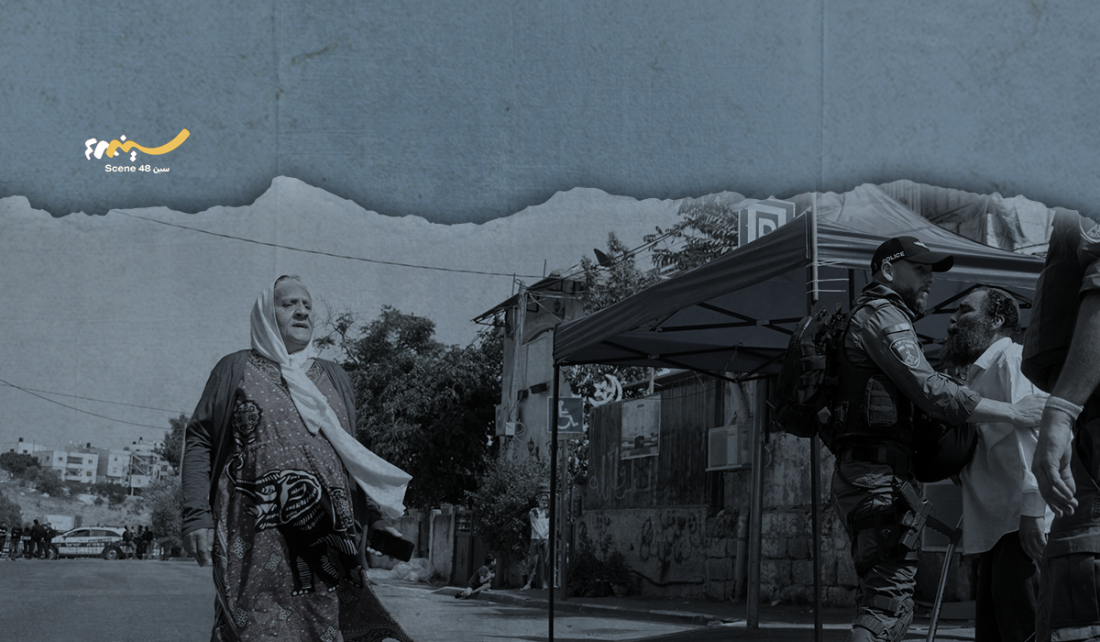East Jerusalem residents, between rock and hard place

Since the illegal annexation of East Jerusalem by Israel in 1967, all Israeli governments have made concerted efforts to significantly reduce the number of Palestinians residing in East Jerusalem. These efforts include harsh restrictions on Palestinian construction in the eastern part of the city, a rigid policy on family unification, and minimal investment in infrastructure. These policies were and are part of a broader strategy aimed at strengthening Israeli sovereignty in East Jerusalem to ensure it cannot be challenged in the future.
Furthermore, few years after signing the Oslo Accords in 1993, Israel has been using an additional method to achieve the goal above. The method, implemented by the Interior Ministry, concerns the residency status of East Jerusalem’s Palestinian residents. Palestinians who are unable to prove continuous residence in Jerusalem are compelled to abandon their homes permanently. Most Palestinian residents of East Jerusalem hold the status of permanent residents. “Permanent residency” is the same status granted to foreign citizens who have freely chosen to come to Israel and want to live in the country. Because Israel treats Palestinians like immigrants, they too live in their homes at the mercy of the authorities rather than by inherent right. This policy persists despite these Palestinians were born in Jerusalem, have lived in the city for generations, and have no other home.
Permanent residency differs substantially from citizenship. Only citizens are granted the unequivocal right to return to Israel. While the law restricts revocation of citizenship to specific cases, the law grants the Minister of Interior absolute discretion to revoke permanent residency, and in certain circumstances, the permit to reside permanently can expire automatically without any formal action by the minister.
Under this legal framework, the most reliable way for East Jerusalem Palestinians to preserve their permanent residency status is through continuous residence within Jerusalem’s municipal borders. For Palestinians who do not travel abroad to study or work, do not acquire foreign citizenship, and do not marry non-Jerusalemites who relocate outside city, their residency status and rights remain secure. Yet, it is unrealistic to expect anyone to live strictly according to such rigid rules. Relocation within or outside the city is a natural part of life, whether motivated by work, education, or other reasons. Moreover, even Palestinians willing to comply with these rules are not guaranteed the ability to do so.
Deportation Orders
In 2024, the Israeli parliament (the Knesset) approved new legislation permitting the government to deport family members of Palestinians accused of “terrorism” to the Gaza, or other locations, including Arab citizens of Israel. The law grants the Interior Minister authority to deport first-degree relatives, including parents, siblings, or spouses of alleged attackers, if they are found to have “expressed support” or failed to report information related to “terrorism.”
Recently, an increasing number of East Jerusalem Palestinians facing deportation orders issued by the Israeli Minister of Defense, the Minister of the Interior, or their representatives, upon direct recommendation of political-security agencies such as the General Security Service and the Israeli Internal Intelligence Service. The deportation orders may be temporary or permanent, usually accompanied by the withdrawal of the permanent residency, and are often justified on grounds of “threatening or disrupting public security.”
In addition to perceived security threats, Israeli authorities justify deportation orders based on the deportee’s “disloyalty” to Israel, expression of opposition to occupation (which is categorized as “incitement to terrorism”), affiliation with Palestinian organizations or factions, or as part of collective punishment. In many cases, the authorities withhold charges, describing them as secret, akin to administrative detention practices.
All East Jerusalem Residents Are Living under Deportation Threat
Israeli policies in East Jerusalem are designed to pressure Palestinians to leave, thereby shaping a geographical and demographic reality aimed at preempting any future challenge to Israeli sovereignty in the city. Palestinians who do leave East Jerusalem, whether due to this policy or other factors, risk losing their permanent residency and attendant social benefits. According to legal organizations, since 1967, Israeli authorities have revoked the permanent residency of more than fifteen thousand Palestinians from East Jerusalem under such circumstances.
The primary purpose of deportation is to empty East Jerusalem of its Palestinian population and to advantage Israeli demographic control. Beyond this, deportation profoundly impacts the individual by severing social ties, isolating the deportee from their community, and exposing them to severe psychological pressure and economic hardship due to job loss or declining income.
Deportation of East Jerusalemites is not limited to formal deportation orders. All residents are live under “conditional” deportation threat; permanent residency represents a form of undeclared forced displacement that can be activated at any moment at the discretion of Israeli authorities.
Photo Credit: Oren Ziv / Seha mekomit.

Moien Odeh
A human rights attorney and PhD candidate at George Mason University - Carter School Peace and Conflict Resolution. LL.M, LL.B, B.A. Accounting.



